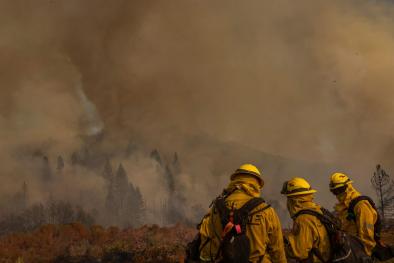Science Source
Climate change impacts on extreme temperature mortality in select metropolitan areas in the United States
- Applies city-specific mortality relationships for extremely hot and cold temperatures for 33 Metropolitan Statistical Areas in the United States to develop mortality projections for historical and potential future climates
- Projections, which cover roughly 100 million of 310 million U.S. residents in 2010, highlight a potential change in health risks from uncontrolled climate change and the potential benefits of a greenhouse gas (GHG) mitigation policy
- Reveals that projected mortality from extremely hot and cold days combined increases significantly over the 21st century because of the overwhelming increase in extremely hot days
- Finds results become more pronounced when accounting for projected population changes
- Results challenge arguments that there could be a mortality benefit attributable to changes in extreme temperatures from future warming
- Results do not address all sources of uncertainty, but their scale and scope highlight one component of the potential health risks of unmitigated climate change impacts on extreme temperatures and draw attention to the need to continue to refine analytical tools and methods for this type of analysis
Related Content
Headline

Feb 7, 2024 | Climate Nexus Hot News
Heat And Smoke Are Worse Together Than Apart
Science Source
| Science Advances
Unprecedented climate events: Historical changes, aspirational targets, and national commitments
Noah S. Diffenbaugh, Deepti Singh, and Justin S. Mankin
Science Source
| American Meteorological Society
Sixfold Increase in Historical Northern Hemisphere Concurrent Large Heatwaves Driven by Warming and Changing Atmospheric Circulations
Cassandra D. W. Rogers , Kai Kornhuber , Sarah E. Perkins-Kirkpatrick et al
Science Source
| American Meteorological Society
Diverse Characteristics of U.S. Summer Heat Waves
Bradfield Lyon and Anthony G. Barnston


